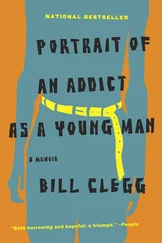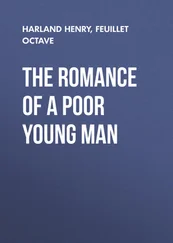Edmund White - Our Young Man
Здесь есть возможность читать онлайн «Edmund White - Our Young Man» весь текст электронной книги совершенно бесплатно (целиком полную версию без сокращений). В некоторых случаях можно слушать аудио, скачать через торрент в формате fb2 и присутствует краткое содержание. Год выпуска: 2016, Издательство: Bloomsbury USA, Жанр: Современная проза, на английском языке. Описание произведения, (предисловие) а так же отзывы посетителей доступны на портале библиотеки ЛибКат.
- Название:Our Young Man
- Автор:
- Издательство:Bloomsbury USA
- Жанр:
- Год:2016
- ISBN:нет данных
- Рейтинг книги:3 / 5. Голосов: 1
-
Избранное:Добавить в избранное
- Отзывы:
-
Ваша оценка:
- 60
- 1
- 2
- 3
- 4
- 5
Our Young Man: краткое содержание, описание и аннотация
Предлагаем к чтению аннотацию, описание, краткое содержание или предисловие (зависит от того, что написал сам автор книги «Our Young Man»). Если вы не нашли необходимую информацию о книге — напишите в комментариях, мы постараемся отыскать её.
Vogue
Our Young Man — читать онлайн бесплатно полную книгу (весь текст) целиком
Ниже представлен текст книги, разбитый по страницам. Система сохранения места последней прочитанной страницы, позволяет с удобством читать онлайн бесплатно книгу «Our Young Man», без необходимости каждый раз заново искать на чём Вы остановились. Поставьте закладку, и сможете в любой момент перейти на страницу, на которой закончили чтение.
Интервал:
Закладка:
Guy was surprised, not because he doubted the man’s verdict but because he hadn’t picked up that anyone was studying him. His worldly-wise grandmother had told him only two months earlier that he had the sort of good looks that weren’t dazzling but only slowly dawned on an observer.
“You could be a model!” the man said. “Are you already?” Maybe his grandmother was wrong and had just been quoting some striking Parisian observation she’d overheard.
“No,” he said, deciding to set the bar very low and make himself sound naïve and folkloric. “I’m just a simple boy of the people from Clermont-Ferrand and this is the first time I’ve ever been in Paris.”
Pierre-Georges pressed a smile away with his fingertips and asked, “Age?”
“Seventeen.”
“ Lycée? ”
“ Terminale .”
“So in a few weeks you’ll be free to work?”
“Yes, sir.”
“Do you have any objections”—again the fingertips pressing the smile from the lips—“to living in Paris and traveling to New York and Milan?”
He decided to play the ingénu (which in fact he was) and said, “Are you kidding? That would be a dream come true.” He knew that a cool, blasé tone was beyond his means; he thought Pierre-Georges would prefer to discover an innocent (Guy was a born actor and could even consciously perform himself).
He took a bus up to Paris a week after the youth rally and Pierre-Georges arranged to have his hair cut and straightened and lightened. He was dressed by Pierre-Georges in loud plaids and a tight-fitting paisley shirt, with long collar points and darts in the back, tight puttees, and English winklepicker shoes, all the ghastly fashions of the early seventies. He learned right away to keep changing his pose. (“You’re giving me repeats,” the wiry little photographer had had to say menacingly only once.) Guy pivoted and smiled or frowned, touched his face or jumped in the air or stared shamelessly at a spot on the wall, all the poses he’d observed in L’Uomo Vogue . The photographer and Pierre-Georges discussed him as if he were more or less a desirable side of beef who could not hear them.
“Great bones,” the photographer said.
“But his nose is a little shiny on the left side,” Pierre-Georges pointed out. “And there’s no notch between his nose and his forehead.”
“But that’s very ancient Greek,” the photographer argued. “Very chic just now.”
“He needs to work out,” Pierre-Georges declared. “A little, not much, just some push-ups and curls and bench presses, high reps and low weights, just to fill out his chest and give his biceps some definition.”
“Straight or gay?” the photographer asked.
“He reads straight,” Pierre-Georges said. “That’s all that counts. All the new male models are straight and married.”
“Nice hands,” the photographer added, “but he needs a manicure, no varnish.”
“Guy, you should throw your shoulders back; the hollowed-out chest look is only for women. And stop smoking! Nothing ages your skin more. If you wanted to do some German catalogue work, swimsuits and underwear, bare-chested, I’d have to burn those two moles off your chest.” Guy’s hand instinctively rushed to his chest to protect it.
In Clermont-Ferrand no one seemed to be gay, or at least everyone he encountered was careful not to cruise. Everyone he knew except the priest was married. Like many teenagers, Guy was unfamiliar with himself. He didn’t know what he wanted — except to see the world. He didn’t know what effect he had on others, but everyone tried to please him, even strangers, and even middle-class men and women overcame their reserve to smile or speak to him. He never had to say much to make people open up to him. He liked to say he led a charmed life.
Guy could tell Pierre-Georges liked him but he didn’t know in what way. He seemed to want to perfect Guy’s look and sometimes Guy felt he was nothing more than a plastic doll that came with tiny outfits and a tiny clothes brush. But Pierre-Georges occasionally smiled at Guy in full complicity as if he knew what was going through the young man’s head. Once, when the wiry little photographer was racing about taking shots of Guy jumping in the air as a fan blew his hair, Pierre-Georges winked at the boy. It was absurd! All three of them clustered together in the darkroom improvised in the bathroom: They watched Guy’s features slowly emerge beneath the clear fluid under the red light. The little photographer whispered in awe, “ Magnifique! A god.” And Pierre-Georges even muttered his highest praise, “Not bad.”
Guy’s mother, wearing her black, most classic dress minus the lace fichu, which Guy had begged her to forego, accompanied him to Paris for his first runway show for Pierre Cardin. She was more nervous than Guy and must have told him ten times not to fall off the stage. He acquitted himself without embarrassment and each time stopped at the right spot for a second’s pause, and the photographers loved him; at least more flashes went off when he took to the runway than for any of the other men. He wasn’t prepared for the frantic changes of clothes backstage; the abrupt, hissed orders as the maquilleuse , smelling of cinnamon gum, kept dancing around him on one foot and dusting his face with her powder puff. Pierre-Georges told him he should look angry, even menacing, as if he wanted to punch someone: “That will give you the right look.”
Inexperienced as Guy was, even he could see that Cardin’s loud plaids and vests for men and polyester ties were in bad taste and that orange, the prevailing color, was offensive. The show was held in the immense new Espace Cardin next to the American Embassy. The great man himself was rushing about, muttering orders and folding back collars. Guy noticed that several of the male models had stopped shaving and showed black stubble. He’d never seen that before and thought it must hurt to be kissed by such a man. At the last minute, Cardin himself clapped horn-rimmed glasses on Guy’s face. The lenses, fortunately, were just clear glass, and Guy could see perfectly normally through them. Guy felt a combination of fear and satisfaction on the runway in front of so many strangers. He felt the power of his looks, but it seemed a very limited power and he couldn’t yet calculate its dimensions.
The next day Guy’s face was splashed all over Paris and he was (sort of) a star (nameless). Pierre-Georges brought to his romantic Left Bank hotel with the view of Notre Dame a whole stack of newspapers. Guy wanted to seem casual and indifferent, but he couldn’t help pawing through the papers, especially the regional ones he read regularly. He could see his cheekbones were so high they cast shadows on his thin face, but he thought he was too smiley and risked looking like a simpleton. Pierre-Georges told Guy and his mother that Cardin wanted to sign him up to an exclusive contract but Pierre-Georges thought they should say no. “I can get you a lot more money,” he said, “by shopping you around.”
Just as Guy was saying, “You’re the expert,” his mother was saying, “Is it wise to turn down a definite offer?” And they all three laughed at this spontaneous revelation of character.
Guy was excited about having his picture all over the papers and millions of readers looking at him. Would they speculate about who he was and what he wanted, or was the whole presentation so glossy it was impersonal? Would people long to know him? Had he already inspired a passion in some stranger’s heart?
Pierre-Georges took Guy and three girls dancing at the Rock ’n’ Roll Circus, a tuxedo disco. The tall skinny girls were decked out in horrible Cardin “space age” dresses of floating geometrical panels over body stockings. (Cardin, he learned, had lent the girls the new dresses from his latest ready-to-wear collection because he wanted his clothes to be seen in Paris hot spots.) Guy didn’t feel confident about his dancing and he wondered if the black light was doing something facetious to his newly processed hair. But Pierre-Georges assured him he looked handsome in black-tie. From there they went on to the Élysée Matignon. When they all got hungry about midnight they went to the Club Sept, which was a table-hopping restaurant and bar upstairs and a small, mirror-lined gay disco in the basement. The music was a wonderful mix; the Cuban disquaire , whom Pierre-Georges called Guy Cuevas, was sitting in a Lucite box and kept playing Marvin Gaye and Dalida.
Читать дальшеИнтервал:
Закладка:
Похожие книги на «Our Young Man»
Представляем Вашему вниманию похожие книги на «Our Young Man» списком для выбора. Мы отобрали схожую по названию и смыслу литературу в надежде предоставить читателям больше вариантов отыскать новые, интересные, ещё непрочитанные произведения.
Обсуждение, отзывы о книге «Our Young Man» и просто собственные мнения читателей. Оставьте ваши комментарии, напишите, что Вы думаете о произведении, его смысле или главных героях. Укажите что конкретно понравилось, а что нет, и почему Вы так считаете.












